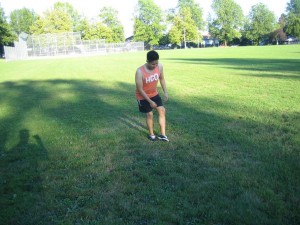 Aside from preparing and training the athletes for sports competition, a good coach must be able to ensure the health and safety of all the athletes and coaching staff. Sports first aid is an essential skill every coach should have.
Aside from preparing and training the athletes for sports competition, a good coach must be able to ensure the health and safety of all the athletes and coaching staff. Sports first aid is an essential skill every coach should have.
Sport coaches are important for sport at all levels – on the school campus, a local team, a professional team, or a major international league. Coaches play a wide array of roles – they teach, train, encourage, motivate and inspire. As such, a coach needs to have good organization and planning skills. They also need to relate well with their coaching staff, athletes, and people around them to make the team go in unison. Besides all of these requirements, a good coach should also learn sports first aid.
Sporting injuries are never uncommon, regardless of the sport you are in. It is extremely important for coaches to know how to provide sports first aid for common sports injuries, as well as for major emergencies. Players and parents trust that their coach knows first aid and that someone is there to help them in case of an emergency. Here are some first aid skills to know:
1. When to Dial 911
A coach should know when to call health professionals and activate emergency services. While there are some injuries that can be managed by you or your health team, there are some situations that necessitate expertise of a health professional. A good coach should now when calling 911 is the best option.
2. Cardio-Pulmonary Resuscitation
CPR is a basic skill taught in sports first aid training courses. It is one skill that everyone needs to know. Even if you do not know how to apply splint or stop bleeding, you should at least learn how to perform CPR.
3. First Aid For Neck Injury
Sports-related injuries are the leading causes of neck injuries, and neck injuries can lead to serious consequences if not handled properly. Therefore, coaches need to know how what to do if players suffer from neck injuries.
4. First Aid For Head Injury
Head injuries are equally serious as neck injuries. Sports first aid puts emphasis on how to handle emergencies that involve the spine and the head because of their potential lethal consequences. Head trauma can lead to serious damage to the brain. Every coach should know how to recognize and treat head injuries.
5. First Aid For A Broken Bone
Although coaches motivate their athletes to ‘break a leg,’ they are never advised to do it literally. Fractures or broken bones are very common sporting injuries, especially for contact sports. When a player fractures a bone, the coach ought to know how to immobilize
the fracture using splints. Sports first aid includes modules on how to manage common sports-related musculo-skeletal injuries. Aside from fracture, other common sports injuries include sprain, strains, and dislocation.
Athletes, coaching staff, and other team members look up to their coach for leadership. And in time of accidents, a coach should be on top of the situation and be able to provide assurance to the team.
